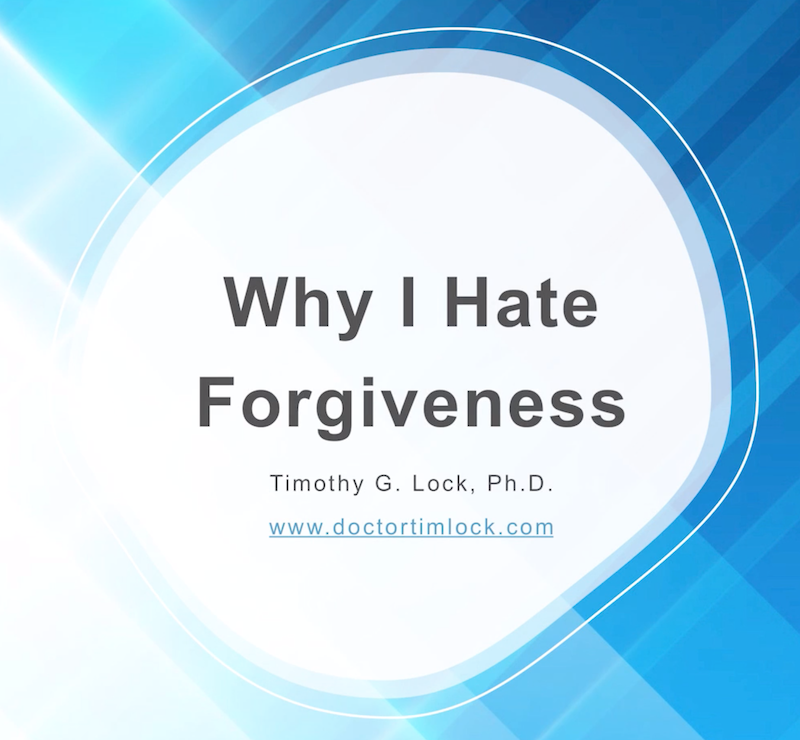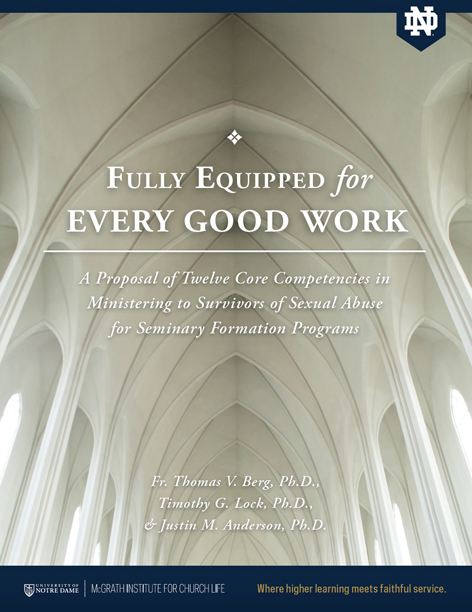Books
Choosing Forgiveness.
UNLEASH THE POWER OF GOD’S GRACE
“To say that offering forgiveness is a challenge is an understatement. Forgiveness is tough! Forgiveness is often messy. Forgiveness doesn’t feel good to most of us. And when it comes to the biggest, deepest hurts in life, forgiveness can seem impossible.
Some hurts are the everyday, garden-variety irritations we endure for having to live in the company of other human beings who lose their tempers, get up on the wrong side of the bed, say nasty things, are ungrateful, selfish, and irritable. Some hurts are of a magnitude that far transcend these — degradation, exploitation, abandonment, rejection, humiliation, racism, bullying, physical, sexual, or emotional abuse. But with God’s grace, even in those most difficult cases, forgiveness is possible.
In Choosing Forgiveness, Fr. Thomas Berg and Dr. Timothy G. Lock are your guides on the way toward forgiveness through the grace of God. This book will help you discover the pathway to healing, peace, and interior freedom, releasing you and those who have wronged you from the bondage of unforgiveness.”
Fully Equipped for Every Good Work
A Proposal of Twelve Core Competencies in Ministering to Survivors of Sexual Abuse for Seminary Formation Programs
Fully Equipped For Every Good WorkFully Equipped For Every Good Work
Notre Dame, IN – The McGrath Institute for Church Life has published a new whitepaper to help seminaries strengthen their formation programs in the wake of the Catholic Church sexual abuse crisis.
“Fully Equipped for Every Good Work: A Proposal of Twelve Core Competencies in Ministering to Survivors of Sexual Abuse for Seminary Formation Programs” is authored by Fr. Thomas V. Berg, Ph.D., Timothy G. Lock, Ph.D., and Justin M. Anderson, Ph.D. The document aims to address a lacuna in seminary formation by presenting a series of core competencies for addressing the pastoral needs of victim-survivors of clergy sexual abuse and victims of sexual abuse in general.
“In this whitepaper, we hope to offer concrete proficiencies by which future ministers of the Gospel can move out to act as agents of healing for those having suffered from the wounds of sexual abuse, including sexual abuse committed by clergy,” said Justin M. Anderson, Ph.D., co-author of the whitepaper.
The report offers a review of the current state of priestly formation in the face of clergy sexual abuse; recent developments in trauma-informed pastoral care; proposed competencies to minister to victims of clergy sexual abuse; and suggestions on how to apply these competencies within existing seminary programs.
Arising out of a larger effort by the McGrath Institute, this whitepaper follows a 2019 study “Sexual Harassment and Catholic Seminary Culture: The First Sociological Survey of Seminarians,” as well as benchmarks proposed by the McGrath Church Study Group that was signed on to by 28 prominent American seminaries.
Formation in recent decades has appropriately focused on more effective screening of candidates, and equipping future priests to assure the establishment of safe environments for children. Where formation was found to be lacking was in equipping future priests to accompany and be agents of healing for victim-survivors of abuse.
“I believe the vast majority of priests are exceptional men who would like to be able to help victims, but many simply do not have the skills,” said Timothy G. Lock, Ph.D., co-author of the whitepaper. “Unfortunately, seminary today does not include an intentional focus on formally training the men in exactly how they can be present to someone who has experienced such a profound violation of sexual, emotional, and spiritual abuse. We hope this white paper will be a contribution to help the Church work toward greater healing.”
The Church’s abuse crisis has emerged against the backdrop of a broader crisis of sexual abuse and trauma throughout the country. It is broadly accepted today that an estimated 70% of adults in the US have experienced a traumatic event at least once in their lives and up to 20% of these people go on to develop post-traumatic stress disorder. This report offers a sensitivity to and understanding of the dynamics of trauma in play in the lives of millions of Americans.
To this end, future priests will need formation in trauma-informed pastoral care, a strengths-based framework grounded in an understanding of, and responsiveness to, the impact of trauma, emphasizing the physical, psychological, and emotional safety of both providers and survivors.
“It is our hope that this document can initiate further reflection, development and a robust conversation at the level of seminary formators and bishops so that ultimately every priest can become more and more configured to Christ, the divine physician, who is both priest and victim,” said John C. Cavadini, Ph.D., McGrath-Cavadini Director of the McGrath Institute for Church Life.
“The present whitepaper is very much a work in progress; it can serve as the basis for an ongoing and very important conversation about how to best prepare clergy for this delicate ministry, and especially how to best incorporate trauma-informed pastoral care into seminary formation programs and programs of ongoing priestly formation,” said Fr. Thomas V. Berg, Ph.D., co-author of the whitepaper.
“As in every era of the Church, bold witnesses to the love and healing power of our Lord and Savior are needed again today, not in spite of the clergy sexual abuse crisis, but in the face of it,” Berg added.
Synopsis by Margaret Scroope. Contact: Maggie Scroope, program director, communications, McGrath Institute for Church Life, mcroope@nd.edu, 574.631.0153.
PHONE
(203)-775-3820
MAIN OFFICE
Goretti Center for Healing & Forgiveness
2 Old New Milford Road, Suite 2A
Brookfield, CT 06804 USA
ADDITIONAL SATELLITE OFFICES
Brookfield, CT, Hebron, CT, and Yonkers, NY



